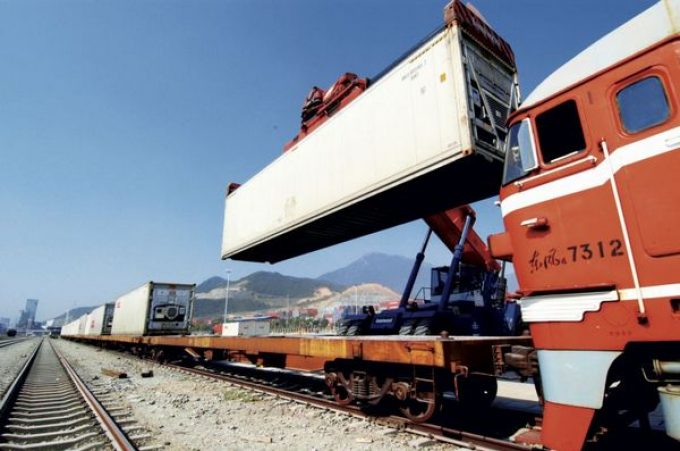Hapag-Lloyd's box tracker will 'close logistics blind spots'
With two-thirds of its 2.9m teu container fleet fitted with Orbcomm and Nexxiot tracking devices, ...
TFII: SOLID AS USUALMAERSK: WEAKENINGF: FALLING OFF A CLIFFAAPL: 'BOTTLENECK IN MAINLAND CHINA'AAPL: CHINA TRENDSDHL: GROWTH CAPEXR: ANOTHER SOLID DELIVERYMFT: HERE COMES THE FALLDSV: LOOK AT SCHENKER PERFORMANCEUPS: A WAVE OF DOWNGRADES DSV: BARGAIN BINKNX: EARNINGS OUTODFL: RISING AND FALLING AND THEN RISING
TFII: SOLID AS USUALMAERSK: WEAKENINGF: FALLING OFF A CLIFFAAPL: 'BOTTLENECK IN MAINLAND CHINA'AAPL: CHINA TRENDSDHL: GROWTH CAPEXR: ANOTHER SOLID DELIVERYMFT: HERE COMES THE FALLDSV: LOOK AT SCHENKER PERFORMANCEUPS: A WAVE OF DOWNGRADES DSV: BARGAIN BINKNX: EARNINGS OUTODFL: RISING AND FALLING AND THEN RISING

China’s Ministry of Transport (MOT) wants the country’s ports to ramp up their reefer handling capacity to meet growing demand for the import of refrigerated foods.
The move follows shortcomings in the food supply chain being brought into sharp focus by the recent lockdowns.
The ministry said ports must add at least 6,000 reefer plugs by end-2023, as by then mainline operators are expected to have added 180,000 teu of reefer capacity.
The MOT also wants to promote the development of IoT-enabled reefers that integrate electronic sensing, wireless communication and automatic positioning to enable automatic collection and transmission of information, such as temperature and humidity.
The ministry is also exploring the use of blockchain technology to allow the electronic release of refrigerated containers.
“Statistics from international hub ports show that, with blockchain, the average processing time of documents relating to reefers can be shortened from two days to within four hours. All ports will be encouraged to tap into blockchain to digitise and speed up the release of refrigerated cargo,” said the ministry.
“Reefer carriers, truckers, freight forwarders and others in the supply chain should also use blockchain to develop electronic waybills.”
China has been leading demand growth in the reefer trade, due to growing imports of frozen meat, seafood and tropical fruits.
The need for more reefer capacity was highlighted by the recent Shanghai lockdown, resulting in the port’s reefer plugs being used for a prolonged period.
The MOT also pointed the need to “formulate relevant guidelines” for reefer transport, adding that it will establish standards and specifications for them, as well as develop information traceability.
Comment on this article